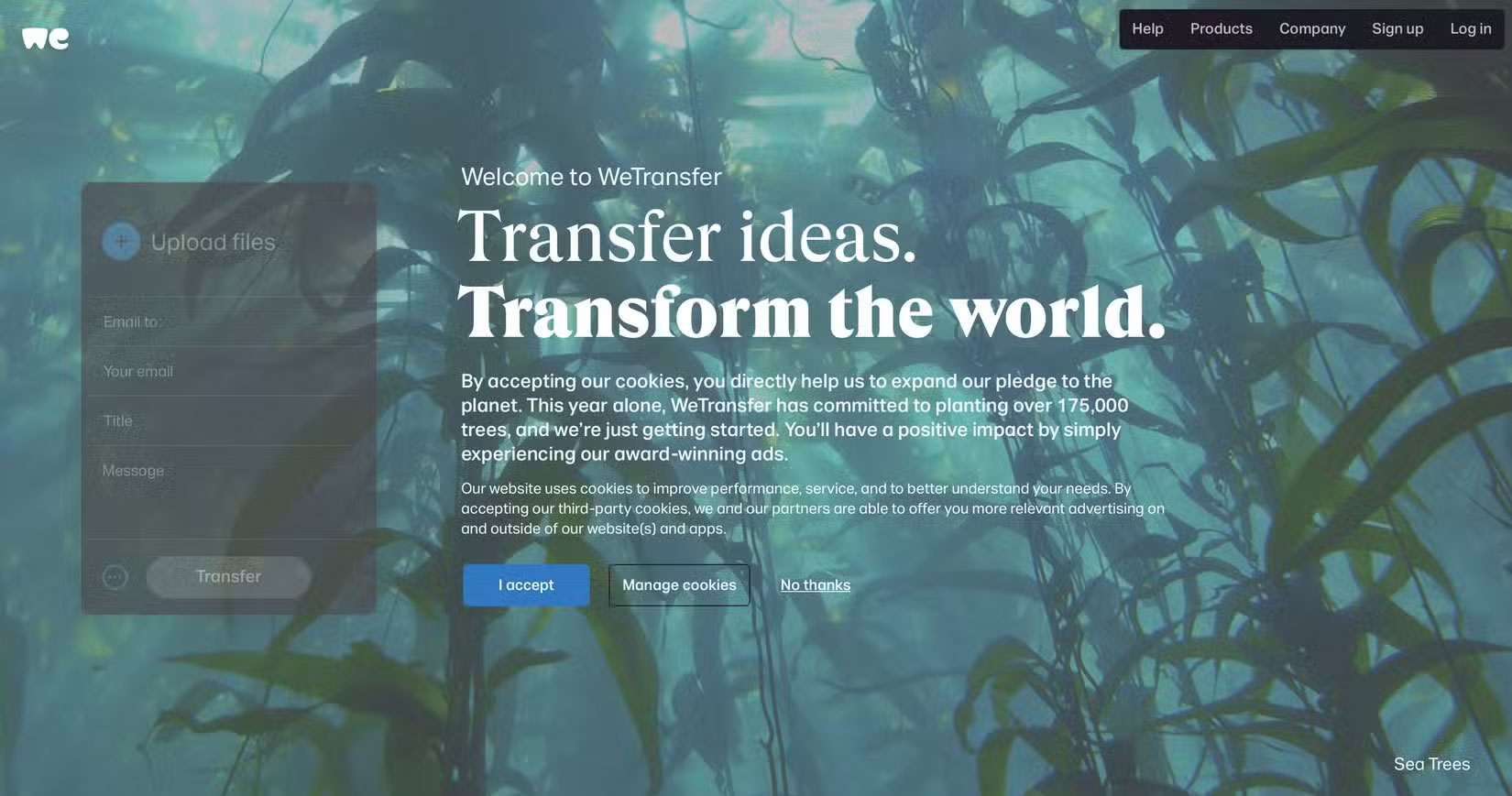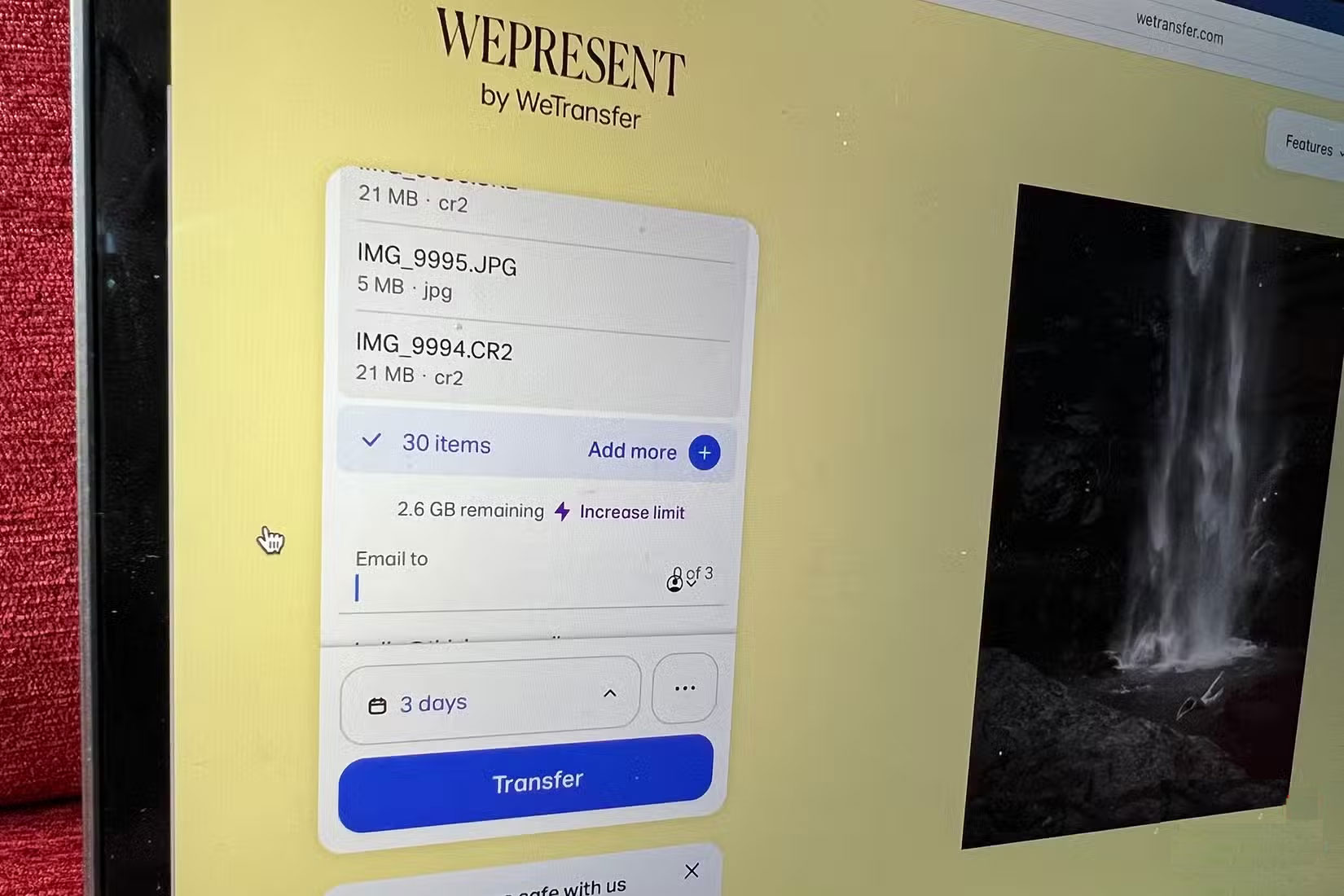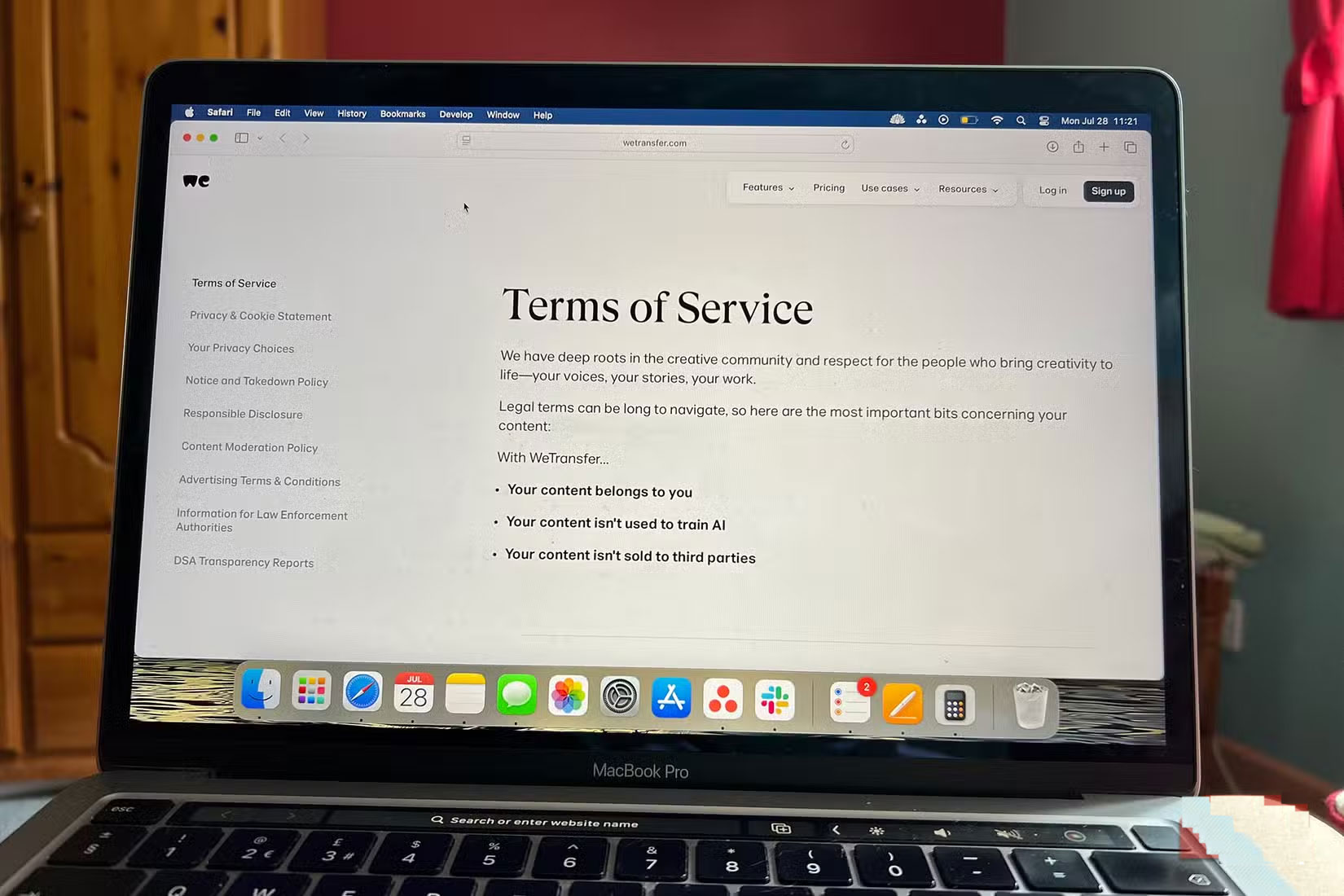Why do so many people decide to abandon WeTransfer after years of use?
Previously, many people recommended WeTransfer to their relatives and friends, but in recent months, it seems that the quality of this service has gradually gone down, and now people are looking for a change.
Many people have been using WeTransfer for almost 10 years
WeTransfer was founded in 2009, but many people didn't hear about it until 2017. Some people used it in their first graphic design jobs as a way to securely send large files to external clients. After moving away from that role, WeTransfer continued to be the tool they used to send files or folders that were too large to attach to an email.

Using WeTransfer is always easy, and no account is required to access. When accessing via your browser, all you have to do is enter your email address and upload your files using the simple drag and drop uploader.
WeTransfer offers different options for sending or receiving files - first, you can create a link to a folder for the recipient to download. This puts all the responsibility of contacting the recipient with the link.
The second option will create a direct email and send it to the recipient on your behalf. The email will include a link for them to open. WeTransfer also allows you to write a message and subject for the email.
How has the quality of WeTransfer declined?
Things started to change after WeTransfer was acquired by Italian company Bending Spoons in 2024. These things happen, and we've seen them in other tech acquisitions. Bending Spoons cut WeTransfer's staff, added a higher-priced premium plan for users, and made other changes.

While the free version is still available, it's significantly limited compared to how people used WeTransfer years ago. While each transfer has now been increased by 1 gigabyte — from 2GB to 3GB — the free plan now caps out at 3GB per month. This is extremely limiting for anyone sending large files, especially for personal use.
It's also changed how long recipients can open your forwarded files. Previously, you could choose between 72 hours and 7 days, giving recipients enough time to ignore your email in the first few days – especially important if the data was sent over the weekend. The new limit only allows free users to choose between 1 day or 3 days, less than half the time previously allowed.
In July 2025, WeTransfer updated its privacy policy, and eagle-eyed users spotted some troubling language in the update. Similar to 2023, when Adobe updated its policy to suggest that it could use your content to train AI, WeTransfer's update suggests that users grant WeTransfer a "perpetual license. non-exclusive, royalty-free, transferable, sublicensable license to use your content. including to improve the performance of Machine Learning models.".
Due to the backlash, WeTransfer updated its policy to retract any suggestions that it would use user content to train AI and use it for commercial purposes elsewhere. This policy update and retraction upset many people and resulted in WeTransfer being demoted to a file transfer service.
Considering that WeTransfer seems to be very safe for file sharing and is not a social network where you upload private images to a public space for everyone to see, the policy and suggestion that WeTransfer may use files or commercialize them for its own benefit makes you consider whether you should continue using WeTransfer or not.
Are your files safe with WeTransfer?
WeTransfer addressed the issues in a blog post after updating its policy in July 2025. They have since clarified their stance and cleared up any confusion over the wording.

If you upload content to WeTransfer to share files, anything you upload will not be used for Machine Learning training purposes , ensuring your files will never become part of an AI training model - something WeTransfer does not currently offer in its services.
All files and content you upload to WeTransfer are yours alone. You retain the rights to any content you upload and WeTransfer only requires permission to actually run its file transfer service. WeTransfer does not store or use your content in any other way than as specified.
WeTransfer does offer collaborations with creators and partners, and you'll find evidence of this throughout the site. It seems like WeTransfer is becoming a social media-style home for creative images, much like VSCO is for photographers. However, at the moment, WeTransfer doesn't upload any content on your behalf or without your permission, so you won't find your own images, videos, or designs on their site unless you submit them yourself.
Because companies are constantly updating their policies, it can sometimes be difficult to decipher the legal jargon and understand the underlying intent of a policy. Whether or not WeTransfer's clarification of its stance makes you feel better is a relief to know that your files won't be used to train AI. But people still want a file-sharing service that doesn't limit their ability to share their creativity.